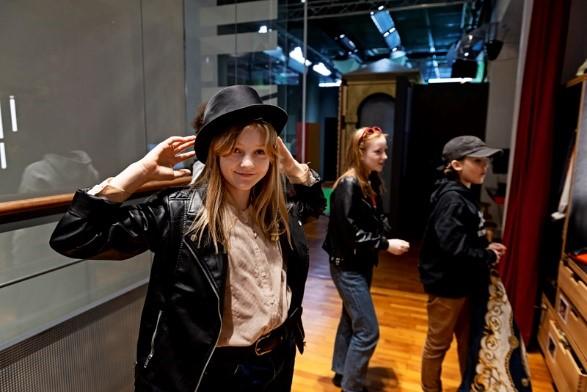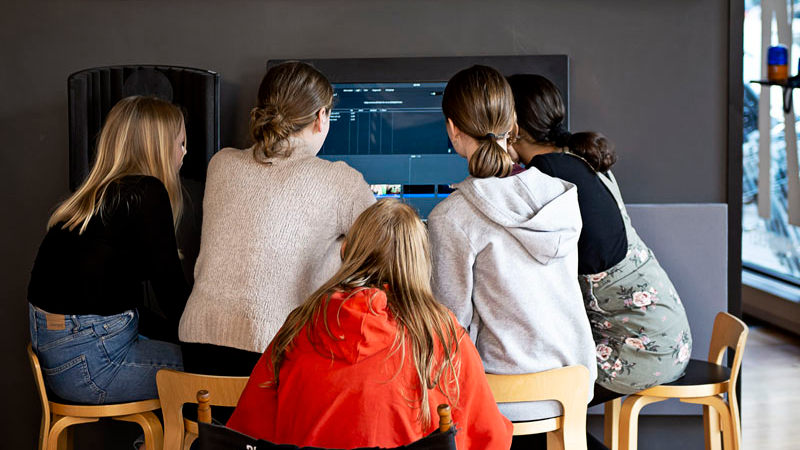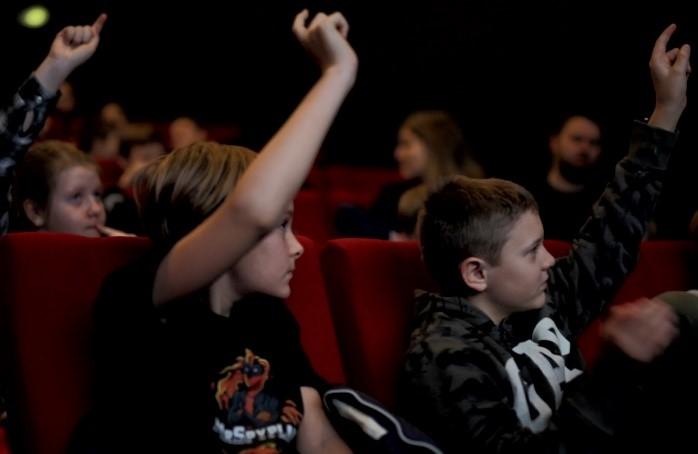
Our school programme links into the general curriculum, in which productive activities and audiovisual communication play a central role. Each workshop has a separate theme relating to school subjects.

Each workshop has resources for teachers and a guide for the film crew, supporting the process of coming up with ideas for a story and characters before going into the studio.
Film workshops in the studios
In our cinema, FILM-X instructors welcome the class with an introduction and dialogue about film examples relating to the theme chosen by the teacher.
When films are produced in the studios, the instructors ensure the flow of the creative process. Keeping a running dialogue with the film crews, they encourage the crews to experiment with the images and sounds of their films.
The workshop ends with a film screening in the cinema and the crews giving each other feedback, supported by the FILM-X instructor.
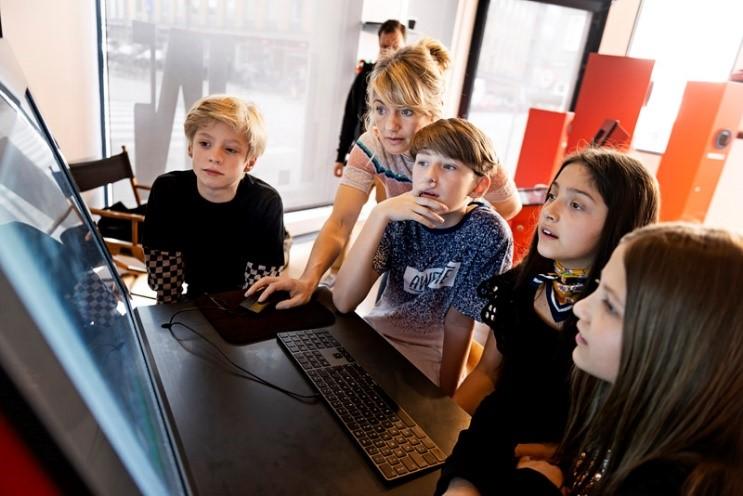
The FILM-X team of instructors has wide knowledge about film language and production, which they use to inspire the participants in close dialogue. They also know pedagogy!
The teacher accompanying the class plays a central role by preparing the class. In addition, a follow-up session back in the classroom is an important phase. Here, the class repeats and reflects on the learning.
A key goal is to encourage the teacher to use the FILM-X workshop as inspiration in continuing to produce films with students using their own equipment.
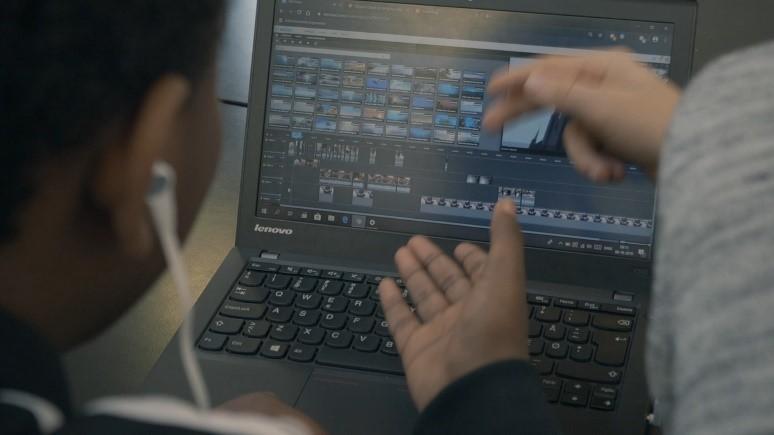
Learning outcomes
Film production in school has learning potential in a number of essential ways. Our activities focus on supporting:
- Creativity, including the ability to make decisions in an open working process, use of physical expression through acting, and conscious use of framing, editing and sound.
- Critical thinking, including basic knowledge about film language, understanding the complexities of film and media production, and knowing the difference between documentary and fiction.
- Collaboration and social skills, including successfully creating a product in an open working process, in which each child has a specific role, and fostering self-esteem by creating a result that can be shared with others.
